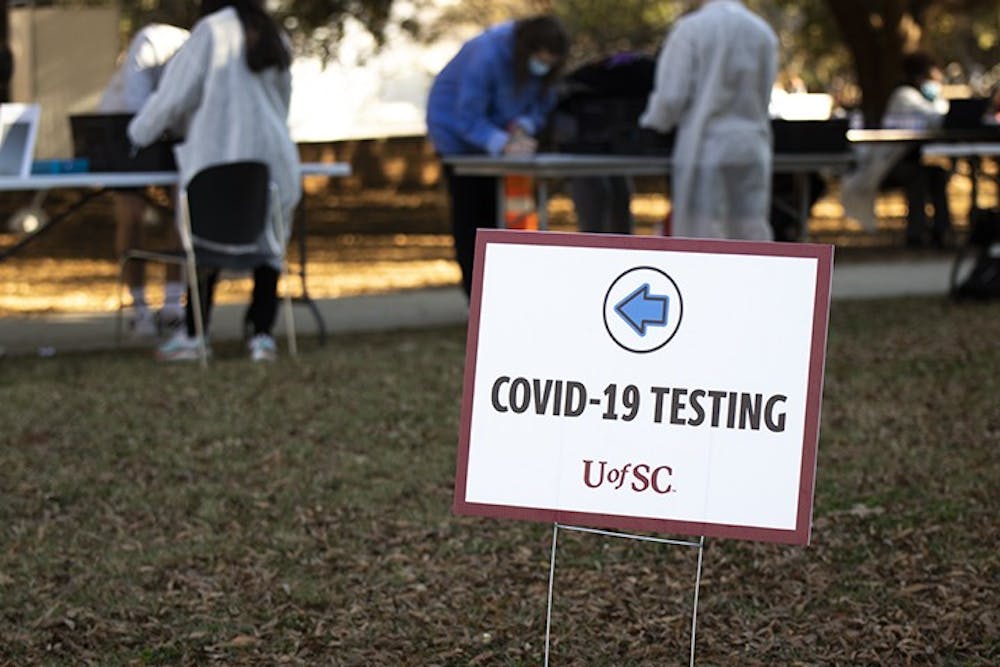Students who do not follow next semester’s COVID-19 testing rules could be fined or suspended, the board of trustees voted Tuesday.
Students who live on campus or who use campus facilities have to be tested every 30 days next semester, along with showing proof of a COVID-19 test prior to classes starting in January.
Students who miss testing one month will be given a warning. If they miss testing for a second month, students will have a chance to get tested within 48 hours or face a $100 fine. The third time a student doesn’t get tested, they have to do so within 48 hours or receive a $250 fine, along with an interim suspension.
Students who don’t get tested for a fourth month will be recommended for suspension.
Half of the student body could have had the coronavirus already, President Bob Caslen told the board in his report. Of the 2,318 students who were tested for coronavirus antibodies, about 55% tested positive, Caslen said. Testing positive for antibodies means the student has already had the coronavirus and their body developed antibodies to fight it.
Caslen said the university tried to get a random sample of the student body when doing antibody testing.
Over the course of last semester, the university conducted over 60,000 tests for COVID-19. Of those, about 1.7% came back positive for the coronavirus, Caslen said.
With the Pfizer-BioNTech vaccine approved by the Food and Drug Administration, the university is working to distribute the vaccine. According to Caslen, faculty and staff who are in high-risk groups will receive the vaccine by the end of December.
“As a matter of fact, I just got an email from a clinical pharmacy faculty member and he received his vaccine today already,” Caslen said. “So as of today, right now, we already have faculty here on campus receiving the vaccine.”
Students, along with other staff and faculty, should receive the vaccine between late February and mid-March, Caslen said.
The board of trustees also approved head football coach Shane Beamer’s new contract at Tuesday’s meeting. Beamer will receive $2.75 million annually, along with other compensation.
Campus Village, the planned makeover of south campus, is slated to be finished and ready for students to move in by fall 2023. Ed Walton, USC's executive vice president for administration, said construction, which will cost $240 million, should restart in the spring, with the demolition of Cliff Apartments. The project was delayed due to COVID-19.
“All the indicators are that if we can get past this COVID problem and its direct effects, USC is going to be fine,” Walton said. “So we want to go forward [with the project]. We want to go forward with haste.”
In anticipation of a possible coronavirus spike once students return to campus, the university has contracted 90 hotel rooms from Dec. 30 to March 1. The rooms, located at the Holiday Inn on Washington Street, will be used for quarantine and isolation and will cost the university $431,843.
The university hopes to be reimbursed for the expense through the COVID-19 relief fund. According to Caslen, the university could receive up to $90 million more in COVID-19 relief funds.

